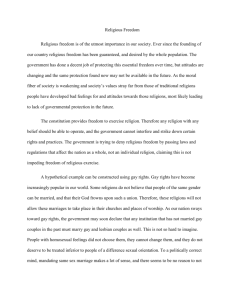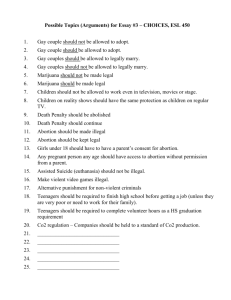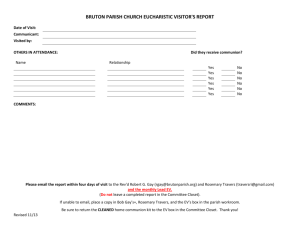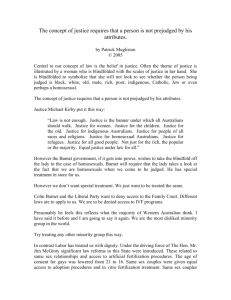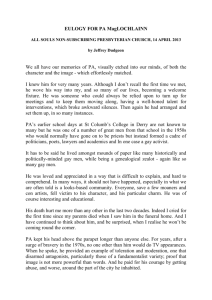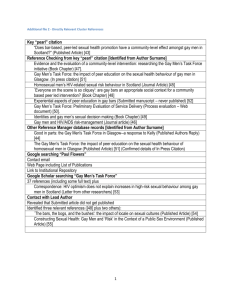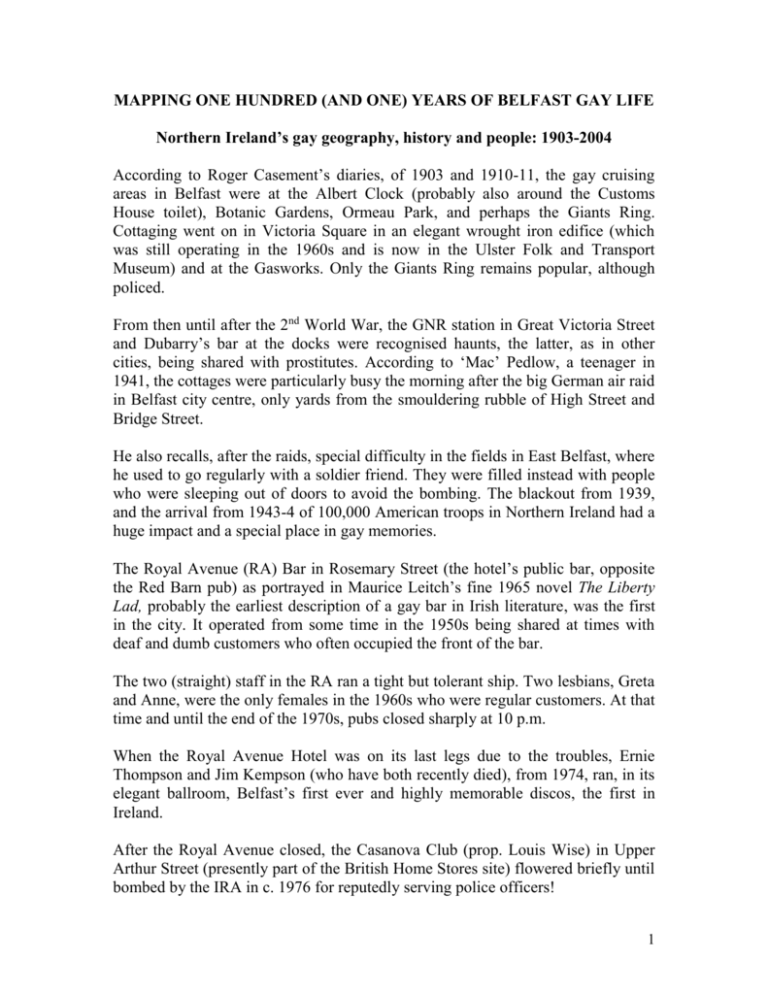
MAPPING ONE HUNDRED (AND ONE) YEARS OF BELFAST GAY LIFE
Northern Ireland’s gay geography, history and people: 1903-2004
According to Roger Casement’s diaries, of 1903 and 1910-11, the gay cruising
areas in Belfast were at the Albert Clock (probably also around the Customs
House toilet), Botanic Gardens, Ormeau Park, and perhaps the Giants Ring.
Cottaging went on in Victoria Square in an elegant wrought iron edifice (which
was still operating in the 1960s and is now in the Ulster Folk and Transport
Museum) and at the Gasworks. Only the Giants Ring remains popular, although
policed.
From then until after the 2nd World War, the GNR station in Great Victoria Street
and Dubarry’s bar at the docks were recognised haunts, the latter, as in other
cities, being shared with prostitutes. According to ‘Mac’ Pedlow, a teenager in
1941, the cottages were particularly busy the morning after the big German air raid
in Belfast city centre, only yards from the smouldering rubble of High Street and
Bridge Street.
He also recalls, after the raids, special difficulty in the fields in East Belfast, where
he used to go regularly with a soldier friend. They were filled instead with people
who were sleeping out of doors to avoid the bombing. The blackout from 1939,
and the arrival from 1943-4 of 100,000 American troops in Northern Ireland had a
huge impact and a special place in gay memories.
The Royal Avenue (RA) Bar in Rosemary Street (the hotel’s public bar, opposite
the Red Barn pub) as portrayed in Maurice Leitch’s fine 1965 novel The Liberty
Lad, probably the earliest description of a gay bar in Irish literature, was the first
in the city. It operated from some time in the 1950s being shared at times with
deaf and dumb customers who often occupied the front of the bar.
The two (straight) staff in the RA ran a tight but tolerant ship. Two lesbians, Greta
and Anne, were the only females in the 1960s who were regular customers. At that
time and until the end of the 1970s, pubs closed sharply at 10 p.m.
When the Royal Avenue Hotel was on its last legs due to the troubles, Ernie
Thompson and Jim Kempson (who have both recently died), from 1974, ran, in its
elegant ballroom, Belfast’s first ever and highly memorable discos, the first in
Ireland.
After the Royal Avenue closed, the Casanova Club (prop. Louis Wise) in Upper
Arthur Street (presently part of the British Home Stores site) flowered briefly until
bombed by the IRA in c. 1976 for reputedly serving police officers!
1
Meanwhile the Gay Liberation Society (GLS) was meeting at Queen’s University
Students Union from 1972 with significant town as well as gown membership.
Initiated by Andy Hinds and Martin McQuigg it was taken forward by Dick
Sinclair, Maeve Malley, Joseph Leckey and Brian Gilmore.
Later from about 1975 until the early 1980s it ran highly successful Saturday night
discos in the McMordie Hall, attended by up to 300 gays (and indeed many
apparent straights). This was a time when there was no other night life in the city.
Key helpers included Kevin Merrett, Billy Forsythe, John McConkey, and
Michael McAlinden. The early and mid-70s were the most brutal years of the
troubles, when there was next to no night life in the city and only gays ventured
out for fear of murder.
Cara-Friend started its befriending and information operation as a letter service in
1974. After a brief telephone service at the QUB Students Union which ended in
the switchboard collapsing, it moved on to a permanent telephone service in about
1976, operating first from Doug Sobey’s flat in Ulsterville Avenue (Doug from
Prince Edward Island in Canada is still a Cara-Friend officer after 30 years).
Lesbian Line and Foyle Friend developed later. Cara-Friend was grant aided by
the Department of Health and Social Services, at Stormont, from as early as 1975
with £700 p.a.
NIGRA (a groups’ group originally) started in the summer of 1975 when USFI
became corrupted. Early NIGRA Presidents have included Dr Graham Carter
(who sadly died young), former life-President Richard Kennedy, and Tim Clarke,
ably supported by Sappho sisters Geraldine Sergeant and Maureen Miskimmin.
A significant number of NIGRA officers married and had children which was
baffling for some. The Strasbourg case taken by Jeff Dudgeon to the European
Court of Human Rights, which in 1982 ultimately resulted in the ending of life
imprisonment for gay men and was the first European recognition of gay rights,
was started by NIGRA in 1975. P.A. MagLochlainn, current NIGRA President,
has filled the post longer than any of his predecessors.
From about 1975 until the early 1980s, Gay Lib or the QUB Gay Liberation
Society (GLS) met in No. 4 University Street, a large 3-storey Georgian terrace
house loaned by the university, where Cara-Friend had a room with a telephone
cubicle. It was in constant use for regular Thursday meetings and parties. From
there was organised the successful case at Strasbourg against the British
Government funded by the Queen’s discos and the later-married pop singer Tom
Robinson (Glad to be Gay and Motorway).
2
1976 was also the year of the totally unexpected gay raids when all the NIGRA
and Cara-Friend committee were arrested and the Director of Public Prosecutions
(DPP) decided to charge Jeff Dudgeon and Doug Sobey, and Richard Kennedy
and another (for sex acts inter se). All of us were over 21 and thus could not be
charged in England. Only a political intervention from London forced the DPP to
drop the cases in 1977, just as the instruction to police to charge us was issued and
literally retrieved from the post room at the last minute.
The Strasbourg case took seven years to go through the court and was won in 1981
when the UK was found guilty of a human rights violation of the European
Convention. This was because it criminalised all gay male sexual activity with a
possible sentence of life imprisonment for buggery, and two years jail for any
other sexual act (“gross indecency”) thereby interfering with the right to a private
life. A year later a reluctant British government pushed an Order in Council
through Westminster legalising certain gay sexual activity with an age of consent
of 21.
The Chariot Rooms in Lower North Street was the first gay-run bar in Belfast. It
and its own disco were operated successfully, and with flair, by Ernie and Jim in
the darkest years of the troubles. It was in the central gated area where no other
night life existed for several years. We had to be processed by the civilian
searchers to enter the central area leading to many camp and ribald remarks. The
reasons for the Chariot Rooms closing are obscure although it was well frequented
and much loved even by soldiers who duck patrolled through the dance floor,
lingering in the warmth and safety. (Ernie and Jim were both processed through
the courts in October 1967 and jailed or committed to hospital along with a dozen
others in the last big round-up of gays in Bangor.)
Off and on in the 1970s and 80s, the Europa’s Whip and Saddle bar in Great
Victoria Street was the city’s only gay venue. Despite, at times being the only
customers in such a bombed hotel, we were never entirely welcome and were
ultimately driven out. At one point in the 1970s NIGRA mounted a picket because
of a member being barred for a serious indiscretion - a kiss.
Due to the late Kieran Hayes (d. 2011), a gay staffer’s, efforts’, the Crow’s Nest in
Skipper Street then became a gay bar with a small disco from c. 1986. After
several makeovers, it changed its name to the Customs House in 2002 and was reinvigorated as a gay bar hosting Men of the North events on alternate Fridays. It
returned to the Crow’s Nest (or Raven’s Rectum) title later, after another
makeover. [The Nest was demolished in 2008.]
The Carpenter Club in Long Lane (proprietors Richard Hodgson, Jeff Dudgeon,
and NIGRA in a limited partnership) was an extensive, unlicensed disco and
3
coffee bar on two floors operating from the early to the mid 1980s. Cara-Friend
had offices upstairs. It was ultimately compulsorily purchased by the DOE to
make way for the currently renamed Writers’ (formerly Skinhead) Square.
The Carpenter Club though gradually successful was vulnerable to any premises
like a hotel on the skids (like the Midland Hotel) which had a drinks licence. Such
licences were prohibitively expensive. Cara-Friend moved to new premises at
Cathedral Buildings in Lower Donegall Street where Lesbian Line also has rooms
and GLYNI and NIGRA meet. Both C-F and Queer Space have run busy Saturday
drop-ins at Cathedral Buildings, the latter having had previous rooms in Botanic
Avenue and Eglantine Avenue.
After buying out his partners, Richard Hodgson, an accountant turned builder, was
dubiously jailed for fraud after receiving compensation on the building’s
compulsory purchase by the Department of the Environment. He developed other
premises in Hill Street which never opened.
The Orpheus Bar/Disco in York Street had a successful three-year existence under
the proprietorship of Ian Rosbotham in the mid-1980s, despite the rampant damp.
It had a short afterlife once renovated.
The Dunbar Arms in Dunbar Link was firebombed by the INLA with drag queen
Aunty Mae (West) the last out of the building being nearly singed to death
possibly due to a protection refusal. After rebuilding, it became the Parliament
Bar, run by two straight guys, Martin Ramsay and Brendan, continuing as a gay
venue with an upstairs disco from the 1990s until 2003 when it abandoned the gay
market. It later returned to its roots as Mynt. Darren Bradshaw an off-duty gay
policeman was horribly murdered there by the INLA in 1997, having been picked
out and shot down in front of dozens of customers.
Cruising areas too have been marred by murder - Anthony McCleave in Oxford
Street, Belfast in the 1970s and Ian Flanagan in Barnett’s Park in 2002. There have
been others.
One nighters have been operated since the mid 1980s in the Midland Hotel
(Saturdays), Delaney’s, the Limelight (Mondays), the Venue, White’s Tavern
(Wednesdays) and Milk (Mondays).
The Kremlin, an extensive, gay-owned (by André Graham and Seamus Sweeney)
bar and disco(s) in Upper Donegall Street, after opening in March 1999, became
the dominant gay venue in the city, regularly enhancing its facilities. Most recently
they have brought property in nearby Union Street to house the men’s health,
Rainbow Project (formerly in Church Lane) and Belfast’s first ever gay sauna, the
4
Garage, in whose tropical climate romance blossoms. A later development in the
creation of a gay village in Belfast was the opening of the up-market Union Street
pub.
Sex in saunas, that is sex with more than two males present, was legalised in 2003
thanks to NIGRA’s successful campaign to have Northern Ireland included in the
Sexual Offences Bill with its total abolition of the crimes of gross indecency and
buggery and the equalising of penalties between gay and straight for sexual
crimes.
The only cloud on the new village’s horizon is cyber-chat and cyber-cruising
which are ever more popular, night and day.
[Dubarry’s bar and disco has since opened in Gresham Street and attracts the older
gentleman, being a bit less noisy (and having fewer straights).]
2003/4+
Jeff Dudgeon
5


